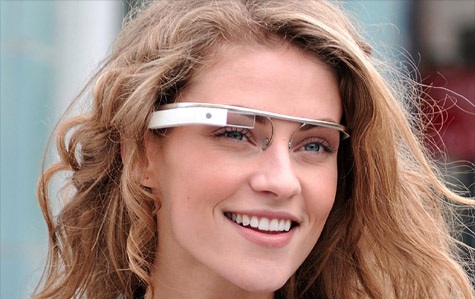Google Glass Update Improves Camera Capabilities

The second software update for Google Glass offers improved photo-taking and the addition of image captions
Google Glass isn’t yet ready for the general public, but sales of the devices are now expected to begin sometime later this year, according to a recent eWEEK report. That’s at least months earlier than the 2014 retail debut the company had been targeting since last year, a source inside Google told eWEEK. The source would not elaborate on why the retail launch schedule is being moved up.
Glass Concerns
 Google recently banned adult-oriented, sexually explicit apps from being offered by developers for its Google Glass devices, just days before what appears to be the first such app was announced by a vendor. The Google Glass ban on adult content is found in Google’s Glass Platform Developer Policies, which now specifically states that the company forbids “Glassware content that contains nudity, graphic sex acts, or sexually explicit material,” according to the policies.
Google recently banned adult-oriented, sexually explicit apps from being offered by developers for its Google Glass devices, just days before what appears to be the first such app was announced by a vendor. The Google Glass ban on adult content is found in Google’s Glass Platform Developer Policies, which now specifically states that the company forbids “Glassware content that contains nudity, graphic sex acts, or sexually explicit material,” according to the policies.
The policy changes came just before the appearance of an adult-oriented app for Glass from MiKandi, whose Website describes the company as an adult app store, according to a story from CNN.com.
The racy app has apparently since been removed from Google’s app store.
The concept of Google Glass has been a hit so far for Google, but some critics argue that they continue to be worried about the privacy implications surrounding the use of Glass, which is an eyewear-mounted computer that features a still camera, a video cam and other real-time recording features. And this week has been an especially busy one for Google and its Glass project when it comes to privacy and societal standards.
In addition to Google banning adult-oriented apps, on 31 May the company announced that it will not allow facial recognition apps on Glass – at least for now – until strong privacy measures can be put in place to protect users and the public from misuse. Several privacy experts told eWEEK that the move to ban facial recognition apps for now was probably the right call.
These are not the first incidents where privacy issues involving Glass have arisen.
A West Virginia legislator introduced a bill this past March that would have banned drivers from operating motor vehicles while wearing Glass and similar head-mounted devices, but the bill stalled and no action was taken in the last session of the state House.
Some members of the US Congress are also taking up the cause of asking lots more questions about the privacy implications of Google Glass, even before the devices are sold to the general public, according to a recent eWEEK report.
In May, the Bi-partisan Congressional Privacy Caucus sent a letter to Google CEO Larry Page asking some pointed questions about how Google planned to ensure that the privacy of users and, more important, non-users was being protected. The members of the caucus noted a series of stories in the media that had emerged about Google Glass, particularly about its ability to find detailed information about a person just by looking at them, and letting Google perform facial recognition and then providing all available information.
Are you a Google expert? Take our quiz!
Originally published on eWeek.